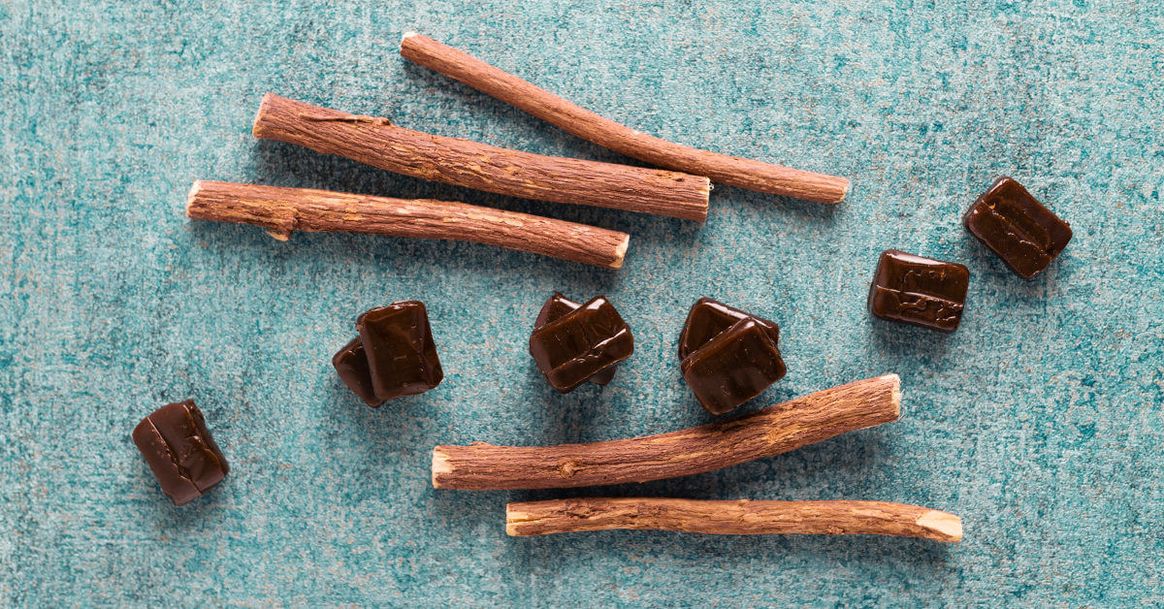Want a 10% discount on your first purchase?
Sign up for our newsletter
theme575
You have no wish lists..
Your shopping cart is empty!
Once you’ve selected your products,
click the Add to Cart button
Licorice is a perennial herbaceous plant of the Legume family. It can be found in the middle latitudes of the European and Asian parts of the continent. The root is used in medicine and cooking. In everyday life, it is called licorice (licorice extract).
Read more...Licorice root in the form of syrup is rich in natural sugar. Its derivatives are added to sweets and licorice candies.
The licorice root can be easily used as an additional assistant to fight acute respiratory diseases. The calorizer is important for people suffering from type 2 diabetes.

You can find licorice root in capsules, in tablets, in the format of alcoholic tinctures, syrups, chewable candies, and lozenges. The functions of the plant extract and effects on the body:
The chemical composition is quite diverse, represented by a variety of vitamins and minerals, active components and substances are:
Licorice root in tablets has a sweet taste. The extract is used as a food additive for soft drinks, confectionery. You can find licorice root in pastille, chocolate, jelly candies, halva.
Limit the intake of licorice if you have any allergies to active ingredients, as well as in case of obesity, pregnancy, and lactation. In case of individual intolerance, completely exclude the licorice root from your diet.
Licorice root is an excellent expectorant for inflammatory processes in the throat during bronchitis. It also has a diuretic and laxative effect. It can be used as a sweetener for people with type 2 diabetes.
One can find active acids (malic, citric), B vitamins, calcium, magnesium, phosphorus, zinc, iron, sodium, and many other useful substances.
Want a 10% discount on your first purchase?
Sign up for our newsletter
Want a 10% discount on your first purchase?
Sign up for our newsletter






